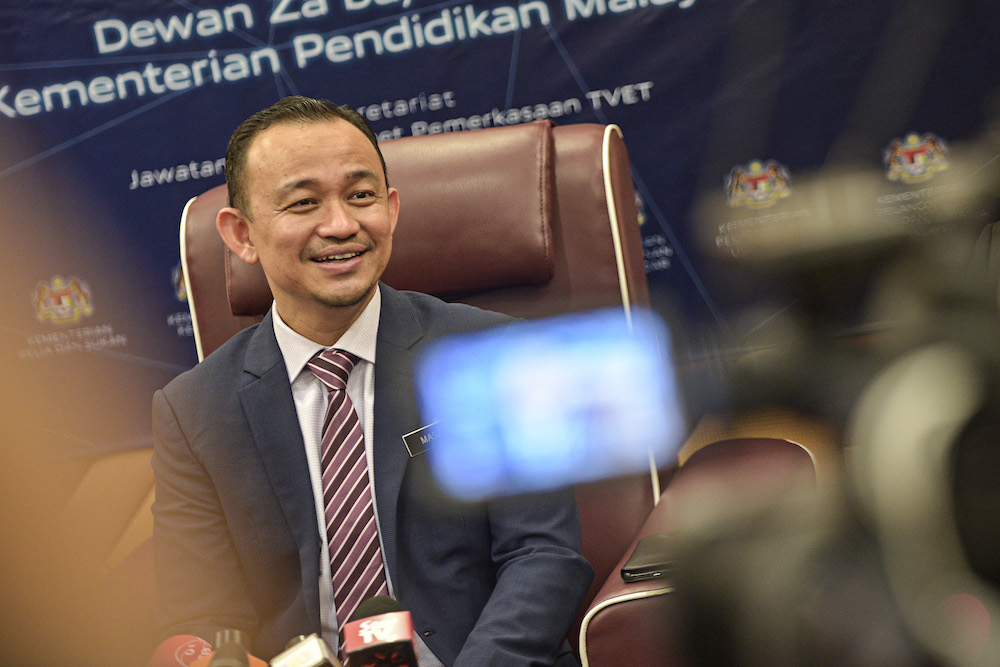PUTRAJAYA, Sept 26 — Education Minister Maszlee Malik today said that changing people’s attitudes towards technical and vocational training and education (TVET) and convincing more industry players to cooperate with the government remains one of the main challenges that the field faces.
He said Malaysian society still has a hard time looking beyond its preconceived notions of vocational education.
“It is a matter of convincing society not to see TVET as a second class or alternative choice (to academic education) but for it to eventually view it as a primary one,” Maszlee said following the launch of the National TVET Campaign and dialogue session with industry players.

He said today’s response from the 40 industry associations participating in the session was a good sign.
“We did not expect so many to come, so today’s reception has been quite enthusiastic,” he said.
When asked if the campaign will be able to propel more to take up TVET, in light of the 11th Malaysia Plan’s target to raise the skilled workforce by 35 per cent in 2020, Maszlee said it is “not impossible”.
“It is achievable if the industries will cooperate with the government in promoting TVET. Based on their reaction today, I have a strong belief that we can achieve that,” he said.

TVET Empowerment Cabinet Committee technical chairman Tan Sri Soh Thian Lai said the anticipated increase in TVET students will benefit the manufacturing sector as a whole.
“This also applies to the service industry. TVET graduates equipped with the latest skills and technology will go a long way in reducing Malaysia’s dependency on foreign labour,” he said.

Human Resources Minister M. Kulasegaran, who was also in attendance, said another challenge for TVET is to change the mindset of certain employers when it comes to wage levels for vocationally-trained workers.
“For example, say, Genting Berhad asked for 1,000 technicians. It is thus incumbent upon us to make this possible for our youths. Without a trained Malaysian workforce, Genting will have no choice but to ask for foreign workers instead.
“There should be a new mindset among some of these employers, as the biggest challenge faced by TVET graduates is how much they should be paid. Yet we have some who pay only a bare minimum, so this should change,” he said.



















